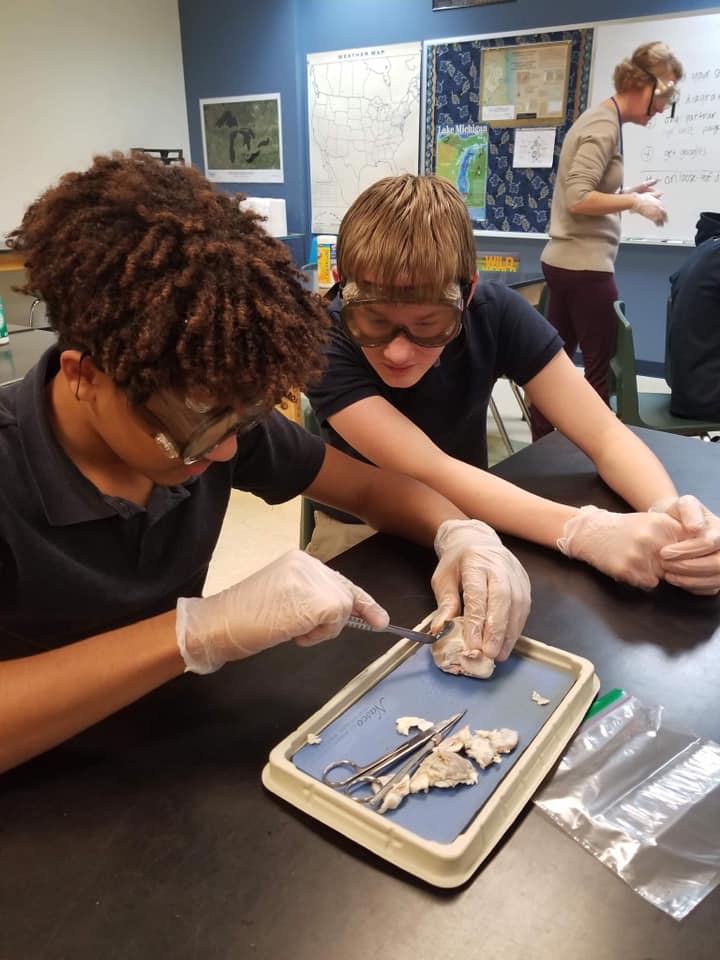Science at St. Mary Parish School is a hands-on experience that connects children to the real world.
Our science program is:
- Constructivist in that all learning is an active process of construction, meaning, and that active construction of meaning is facilitated when teachers create an environment that motivates students to be physically and mentally engaged.
- Integrated in that through a thematic approach to topics, students can explore great ideas in science across disciplines allowing students to make connections more readily.
- Continuum-based in that it allows students to revisit concepts on a periodic basis in order to give them opportunities for which deep levels of comprehension building arise from the experience of science.
- Related to real-world technology and must allow students to gain real world experience, engage actively in real world studies, place students in contact with community leaders and parents/guardians whose lives and work are science-based.
Children and youth learn by doing – they develop an understanding of concepts and principles through hands-on learning. Core Science Concepts are developed in depth, rather than a cursory understanding (breadth) of many topics. Concepts are explored in a context of how they apply in the real world. And, meaningful field trips that link to key concepts are incorporated into the curriculum.
Here are specific examples of St. Mary’s proactive approach in action:
- Carving pumpkins and placing them in water helps first grade students understand floating and sinking and why pumpkins float and Jack O’Lanterns sink.
- Water quality and its importance are taught in seventh grade through student measurement of dissolved oxygen, pH, temperature, velocity, invertebrate index and is compared under varying conditions along the course of a local river to determine the impact of various factors on the quality of water in a river. This quality is the compared and contrasted to other rivers through a virtual experience along three branches of the Mississippi River.
- Observation of rock formations at Riveredge in fourth grade facilitates understanding the geologic history of Wisconsin.
Our eighth graders experience a scuba diving unit to study buoyancy, density, and Archimedes principle. Scientific literacy develops an understanding of how and why events occur as they do in the natural world; promotes a way of learning about the behavior of the universe and the matter and energy it contains; organizes knowledge so it is comprehensible and useful, develops models and theories that correlate with past observations and predict future events.
Find out how your child will benefit from real-world science at St. Mary Parish School. Contact us for more information.
